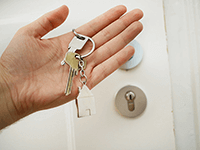
Nothing can beat the excitement of buying a new home, especially if it is your first. However, it can be nerve-wracking due to the paperwork and planning required.
You can try to make it less stressful by removing the guessing game of what costs may be involved. In this guide, we will help you better understand what costs you could find in the process.
Mortgage deposit
This will probably end up being the biggest expense. A typical deposit is 10% of the property price so, as an example, when buying a house for £250,000, you would need £25,000 for a deposit. Of course, the deposit depends on how much you can save and the mortgage you find.
If you can afford a bigger deposit, offer more. This could lower the interest rate available. But of course, your situation will play a big role in what you can afford.
Mortgage valuation fee
If like most, you are getting a mortgage to buy a house, many lenders will need a valuation of the property. This is a very basic inspection and is used by lenders to decide if the property can be used as security.
In some cases, the fees of this valuation are removed as part of a promotion by the lender. If this is not the case some lenders recommend budgeting around £250 to £1,500 for these fees.
Mortgage fees
On top of the valuation fee and the interest you pay back, your mortgage may have other fees. These heavily depend on your specific package or promotion. To help give you a rough idea we listed some common ones below.

Survey costs
A home survey is a must once you find a house to buy. Try to get one early in the buying process to learn more about your soon-to-be home. You could use this to reassure yourself of the condition of the future home or to try and negotiate the house price.
There are 3 base levels of home surveys all aimed at different types of properties. Working out the true cost can be very hard, only experienced surveyors can give you an idea of what level you may need. To give you a rough idea we broke down what each survey offers below.

Legal fees (Conveyancing)
The process of transferring a legal title of a property is called conveyancing, which is usually carried out by solicitors. Solicitors will charge a base rate for their services along with fees that they incur when registering the ownership change with the Land Registry. They could also charge you for searches they carry out on your behalf, for example, a search on the land to make sure it is not contaminated.
Typical legal fees cost between £500 and £1,100. If any search needs to be carried out expect around £700 to be added on. These prices may vary on the property type, location, value and whether it is freehold or leasehold. Therefore, it can be hard to predict.
Stamp duty
How much stamp duty you will pay depends on many factors. However, it will mainly be impacted by the cost of the property, where it is in the UK, and how many other properties you own. Stamp duty could cost between 0% and 12% of the property value. Currently (April 2024), a first time buyer won’t pay any stamp duty on properties up to £425,000. Learn more about stamp duty then calculate how much you would pay.
What if you are selling your house?
If you are selling your house, there are a few more services you will need to consider when working out the overall costs involved.
Estate agent fees
Many high street estate agents charge percentage-based commissions (often on a 'no sale no fee' agreement). The costs for these vary between each agent, with some charging as low as 0.9% or as high as 3%. Unless obvious, check with estate agents that their quotes include VAT before making any final decisions.
You could also use online-only estate agents. They often charge a fixed upfront fee (typically between £600 and £1,500), but this means if they fail to sell your house and you decide to try another agent you could double your costs.
If you are looking at selling your house via auction, there could be two types of fees to budget for, auction entry fees or sale commissions (sometimes both). Auction entry fees can vary from £0 to £3,600. On the other hand, commissions on sales range between 2% to 3% of the final selling price.
Energy Performance Certificate
An EPC certificate is valid for ten years. You should check if your house needs a renewal before you sell it. If you completed improvements to the house, you may want to renew the certificate anyway. This will help you get a more accurate, up-to-date rating potentially making it more appealing to buyers.
Summary
Knowing how much you will roughly spend can be very helpful when buying or selling your first home. However, you should remember these vary on your situation. Your mortgage advisor, solicitor, or estate agent could help you work out a more accurate summary of costs.
Loans are secured against property. Think carefully before securing other debts against your home. Your home may be repossessed if you do not keep up repayments on a mortgage or any other debt secured on it.




